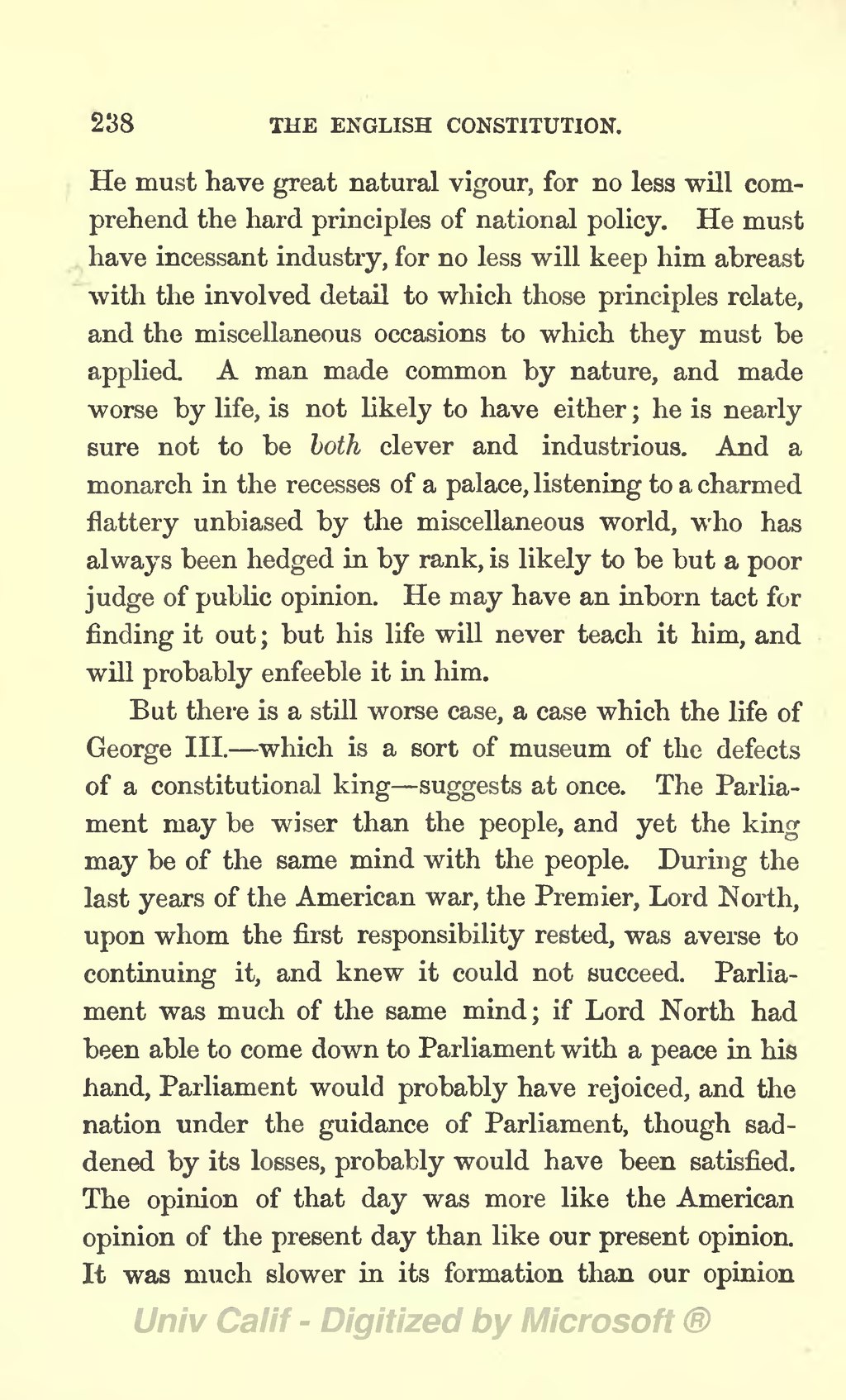He must have great natural vigour, for no less will comprehend the hard principles of national policy. He must have incessant industry, for no less will keep him abreast with the involved detail to which those principles relate, and the miscellaneous occasions to which they must be applied. A man made common by nature, and made worse by life, is not likely to have either; he is nearly sure not to be both clever and industrious. And a monarch in the recesses of a palace, listening to a charmed flattery unbiased by the miscellaneous world, who has always been hedged in by rank, is likely to be but a poor judge of public opinion. He may have an inborn tact for finding it out; but his life will never teach it him, and will probably enfeeble it in him.
But there is a still worse case, a case which the life of George III.—which is a sort of museum of the defects of a constitutional king—suggests at once. The Parliament may be wiser than the people, and yet the king may be of the same mind with the people. During the last years of the American war, the Premier, Lord North, upon whom the first responsibility rested, was averse to continuing it, and knew it could not succeed. Parliament was much of the same mind; if Lord North had been able to come down to Parliament with a peace in his hand, Parliament would probably have rejoiced, and the nation under the guidance of Parliament, though saddened by its losses, probably would have been satisfied. The opinion of that day was more like the American opinion of the present day than like our present opinion. It was much slower in its formation than our opinion
